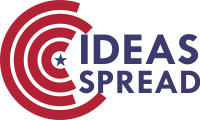The Metadiscourse Analysis in Abstracts of Multidisciplinary Sciences Journal Articles: Hedges vs Boosters
Abstract
In academic writing, authors must separate opinion from facts and assess their arguments suitably and convincingly, the expressing of uncertainty and certainty is critical. This research investigates the usage of hedges and boosters in research articles from three disciplines: engineering, social science, and midwifery. This study carries three issues: what are the language forms of hedges and boosters in abstracts of journal articles of multi-disciplinary science at Tulungagung University, how often hedges and boosters are used and how their meaning reflects the writer's level of assurance in the information given. The research design used in this study is descriptive-qualitative. The data taken were from in the past five years (from 2017 to 2022) as its primary sources of data. The researcher used random sampling and took ten articles of each science. There were thirty papers contributed by the lecturers who submitted their journal articles to the Tulungagung University repository (https://repository.unita.ac.id/). This study concluded that abstracts of journal articles in midwifery science were the highest among the other sciences. The second most used of hedges was also found in engineering sciences and the lowest usage was from social science. This finding is not relevant to (Vázquez Orta & Giner, 2008) conclusion that Hedging is more common in disciplines driven by socially manufactured, abstract data and less often in fields driven by real data. The findings of this study generally validated Salager- Meyer's assertion that it is crucial and extremely important to be able to navigate scientific language. In contrary, the highest booster frequencies were found in social science, and then the second was in midwifery science. The lowest was in engineering science. It appears that the boosters are being used to convey a high level of confidence in the conclusions that can be drawn from the outcomes of the study that was carried out. In other instances, the boosters appear to serve as rhetorical devices that are designed to express the author's view as if it were self-evident or as if it were a commonly acknowledged thought or truth. In social science which the author writes more argumentatively, boosters were needed to convey their ideas or opinions much more.
Downloads
References
Hardjanto, T. D. (2016). Hedging Through the Use of Modal Auxiliaries in English Academic Discourse. Jurnal Humaniora, 28(1), 37. https://doi.org/10.22146/jh.v28i1.11412
Hyland, K. (1998). Boosting, hedging and the negotiation of academic knowledge. Text, 18(3), 349-382. https://doi.org/10.1515/text.1.1998.18.3.349
Hyland, K. (2005). Stance and engagement: a model of interaction in academic discourse. Discourse Studies, 7(2), 173-192. https://doi.org/10.1177/1461445605050365
Lander, J. A., & Brown, H. D. (1995). Teaching by Principles: An Interactive Approach to Language Pedagogy. Language, 71(4), 843. https://doi.org/10.2307/415773
Liu, J. (2020). A pragmatic analysis of hedges from the perspective of politeness principle. Theory and Practice in Language Studies, 10(12), 1614-1619. https://doi.org/10.17507/tpls.1012.15
Mulatsih, S. (2008). Hedges: The Expressions of Doubt and Certainty. 4(2), 73-81.
Poveda Cabanes, P. (2007). Architecture Project Descriptions. Resla, 20, 139-158.
Salager-Meyer, F. (1994). Hedges and textual communicative function in medical English written discourse. English for Specific Purposes, 13(2), 149-170. https://doi.org/10.1016/0889-4906(94)90013-2
Salichah, I., Irawati, E., & Basthomi, Y. (2015). Hedges and Boosters in Undergraduate Students ’ Research Articles. Jurnal Pendidikan Humaniora, 3(2), 154-160. Retrieved from http://journal.um.ac.id/index.php/jph/article/view/4855
Triyoko, H., Wijana, I. D. P., & Baryadi, I. P. (2021). Hedges and Boosters in Indonesian Scientific Articles. Register Journal, 14(1), 65-82. https://doi.org/10.18326/rgt.v14i1.65-82
Vázquez Orta, I., & Giner, D. (2008). Beyond mood and modality: epistemic modality markers as hedges in research articles. A cross-disciplinary study. Revista Alicantina de Estudios Ingleses, 21(21), 171. https://doi.org/10.14198/raei.2008.21.10


This work is licensed under a Creative Commons Attribution 4.0 International License.
Copyright for this article is retained by the author(s), with first publication rights granted to the journal.
This is an open-access article distributed under the terms and conditions of the Creative Commons Attribution license (http://creativecommons.org/licenses/by/4.0/).









1.png)









1.png)











